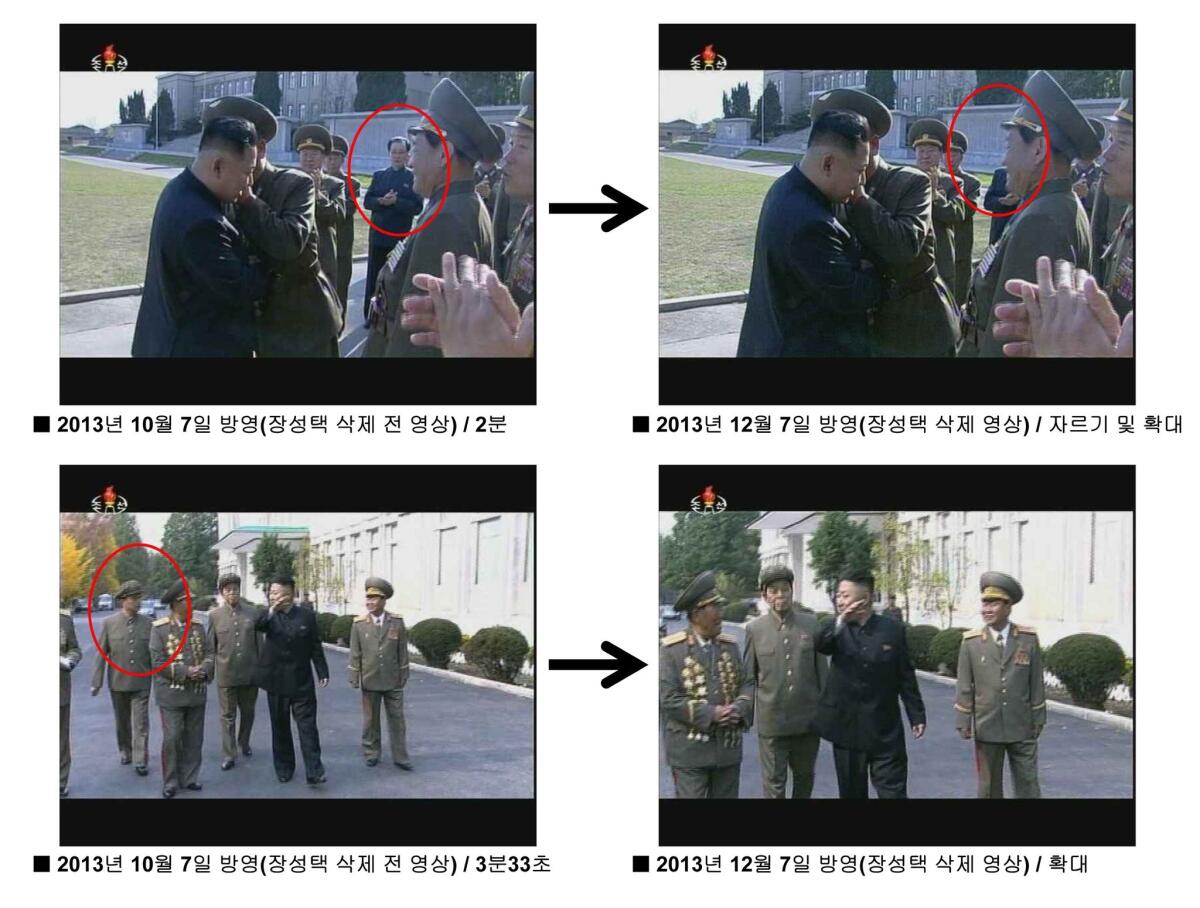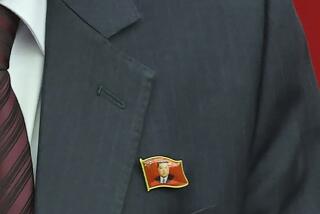North Korean ouster could bring more political turmoil

SEOUL--North Korean leader Kim Jong Un’s spectacularly public ouster of his uncle, Jang Song Taek, could bring about more political turmoil as the purge extends to Jang’s coterie of powerful relatives and supporters.
The 67-year-old Jang has been a fixture in the country’s hierarchy for decades and has people close to him entrenched throughout the Pyongyang regime—in fact as far away as Havana and Kuala Lumpur.
His wife is Kim Kyung Hui, the daughter of North Korea’s founding leader, Kim Il Sung.
One of his nephews, Jang Yong Chol, the North Korean ambassador to Malaysia, was called back to Pyongyang recently, South Korean intelligence told legislators last week. Also recalled was the ambassador to Cuba, brother-in-law Jon Yong Jin, a senior diplomat who’d previous served in Iceland and Sweden.
North Korean state television on Monday showed images of Jang being yanked out of his seat at a special session of the ruling Workers’ Party, an unprecedented public humiliation of a man who until recently was considered the second in command. The images were shown in a special broadcast that interrupted regular programming.
Earlier in the day Pyongyang’s KCNA news agency had cited “anti-state and counterrevolutionary factional action” as the reason for Jang’s fall. The state paper also blasted Jang for leading a dissolute and corrupt life influenced by capitalism, such as womanizing, gambling and drug use.
North Korea watchers said the purge revealed some wobbliness in the 2-year-old reign of Kim Jong Un, who became the world’s youngest head of state when his father, Kim Jong Il, died in 2011.
“The recent affairs seem to show that the Kim Jong Un regime has not stabilized yet. It’s not easy for young Kim to establish a sole leadership in just two years,” said Moon Hong-shik, a research fellow at the Institute for National Security Strategy in Seoul.
Moon thought it unlikely that Jang’s allies would desert Kim Jong Un en masse because they owe their loyalty to the ruling family.
Kang Chol-hwan, a prominent North Korean defector, suggested, however, that Kim Jong Un may have overreached.
“If Kim wields his ax too indiscriminately to consolidate his grip on power, he could be paving the way for his own demise,” he wrote in a column published Monday in Chosun Ilbo, a South Korean newspaper.
According to Kang, Jang commanded some 200,000 North Korean troops, who reported to the Workers’ Party Administration Department, which he headed. His connections extended into the army-controlled trading companies that procure most of North Korea’s hard currency by trading across the border with China and elsewhere.
North Korea’s ambassador to China, Ji Jae-ryong, is considered another of Jang’s protégées. And another nephew is on a key committee handling economic relations with foreign countries.
The first clues of the turmoil within North Korea came last week when South Korean intelligence reported the public execution in late November of two of Jang’s close confidants -- Ri Yong Ha and Jang Soo Kil.
Last week, Seoul’s TV news channel, YTN, reported that one of Jang’s closest confidants escaped to China two months ago and reached out to the South Korean government to seek asylum, citing a source familiar with the matter. According to the report, the confidant was in charge of managing Jang’s slush fund, and is now being protected by the South Korean intelligence agency.
Seoul’s Unification Ministry, which is in charge of North Korean affairs, said it has not confirmed the report about the asylum-seeker.
There is conflicting information about Jang’s fate and whereabouts, with some defector organizations reporting that he may have been executed over the weekend.
The South Korean newspaper, JoongAng Ilbo, reported last week that Jang was under house arrest, “writing letters of apology to Kim Jong Un.”
The newspaper said that his wife, Kim’s aunt, remained with him and speculated that as “long as Kim Kyung Hui survives, no one would, at least physically, hurt Jang Song Taek.”
Jang’s power within the regime has long been a source of insecurity in the ruling family. Kim Il Sung, the patriarch, reportedly disapproved of his daughter’s marriage. Kim Jong Il, the founder’s son and successor, was wary of his brother-in-law’s popularity inside North Korea and among foreign dignitaries, who considered Jang more open-minded and economically savvy.
In 2004, Jang was quietly purged from the leadership. But after Kim Jong Il suffered a stroke, he rehabilitated Jang, feeling he needed a mentor to groom his son, Kim Jong Un, to inherit power.
ALSO:
India’s ruling party takes drubbing in state elections
Nelson Mandela is prayed for, celebrated at South African church
Israel’s Benjamin Netanyahu to skip Mandela memorial, citing cost
barbara.demick@latimes.com
Twitter: @BarbaraDemick
Times staff writer Demick reported from Beijing and special correspondent Choi from Seoul.
More to Read
Sign up for Essential California
The most important California stories and recommendations in your inbox every morning.
You may occasionally receive promotional content from the Los Angeles Times.










